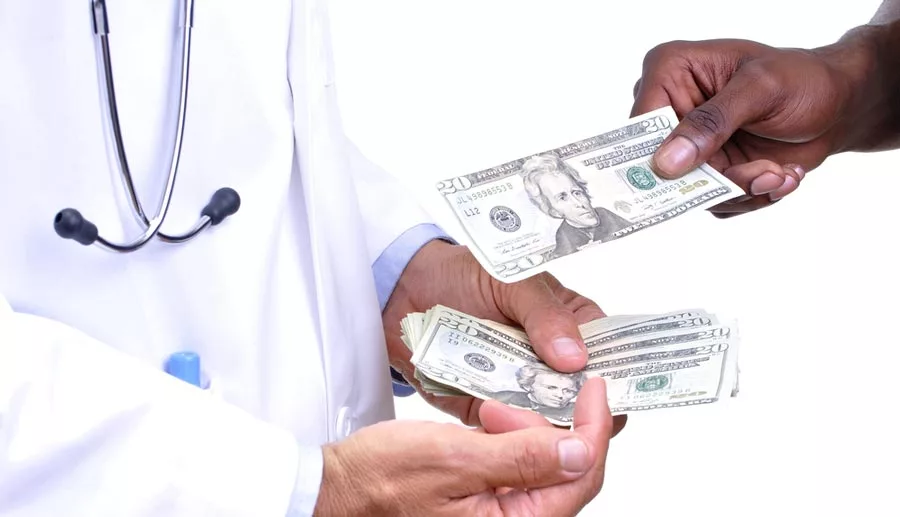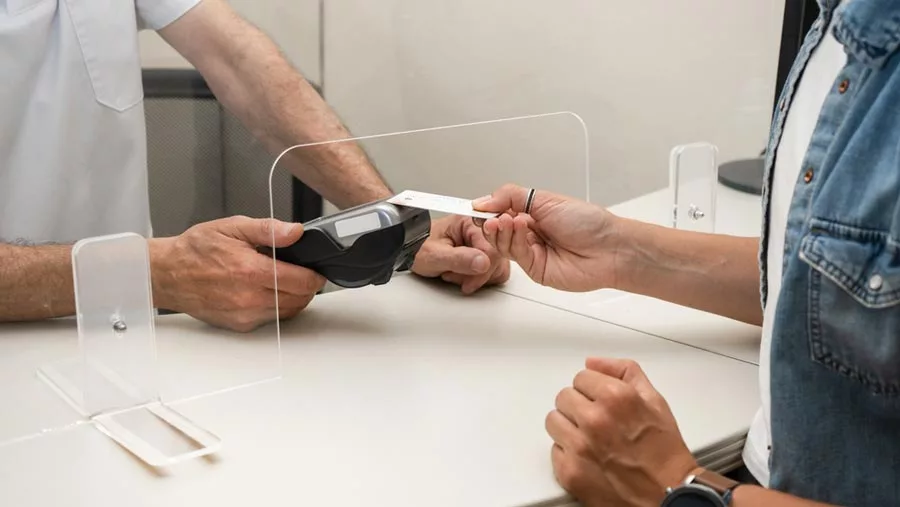Self Pay Rehab

Paying Out of Pocket for Rehab
Addiction and mental health illnesses can have devastating effects on your life. Luckily, recovery is possible through evidence-based therapies with our self-pay rehab programs.
Drug addiction and mental health disorders are complex conditions that affect the brain. This makes it necessary for people with either disorder to get comprehensive treatment for recovery. However, rehab can be costly. Once you or a loved one decide to regain control of your life and enter rehab, the next thing to consider is how to cover the cost of treatment.
People seeking rehabilitation often services pay for rehab using health insurance. Most insurance companies cover part or all of the addiction and mental health treatment costs.
At Exclusive Hawaii Rehab™, we support clients through the insurance claims process and deal directly with most insurance providers to facilitate the easy delivery of rehab services. We also help clients who prefer to cover the cost of treatment through private pay rehab options. Our team believes lack of insurance should be a barrier to receiving treatment.
Self-pay helps you pay for rehab when you don’t have coverage, or your insurance plan doesn’t cover the specialized program you need. It can also help if you have maxed out your addiction benefits.
Keep reading to learn more about our self-pay rehab options, and why you might seek this form of reimbursement for your time at Exclusive Hawaii Rehab™!
Experience True Healing
Our deeply-caring staff and the surrounding natural beauty offer an unparalleled healing experience.
What Is Substance Abuse Treatment?
Drug and alcohol addiction rehab centers offer professional treatment for people suffering from chemical dependency and substance abuse problems. There is a wide range of commonly abused drugs, such as alcohol, heroin, cocaine, crystal meth, opiates, marijuana, and prescription drugs. But drug and alcohol addiction are treatable through comprehensive treatment plans.
Common concerns by people seeking treatment include getting the money for rehab if health insurance doesn’t cover it. Many people who need help with their addictions do not have access to adequate health coverage, so they must pay out of pocket. Fortunately, there are several options for people in need of alcohol or drug treatment who do not have health insurance coverage.
Private Pay Rehab Options

Many different forms of out-of-pocket payment options for drug and alcohol rehabilitation are available. If you can’t afford to pay cash, other payment options are available.
Some people can secure private loans from loving friends and family dedicated to assisting them in affording high-quality behavioral healthcare and addiction treatment programs, but this depends on the individual’s situation.
If you have a history of borrowing money to support your drug habit, you might expect to be regarded with skepticism if you decide to pursue this option. That doesn’t mean you shouldn’t attempt, especially if you have a robust support system whose members are invested in your recovery’s success and can provide financial assistance.
You can also approach your local bank, credit union, or one of the many alternative lenders who focus on providing loans for mental health and addiction care to secure a personal medical loan. As with other medical expenses, drug rehab costs may be covered by some interest-free financing options.
Why People with Health Insurance May Choose Self-Pay Rehab Options for Addiction Treatment
Although it would seem convenient to have health insurance that pays for addiction treatment, many insurance providers have stringent limitations regarding which facilities they would pay for. This can make it challenging to find the rehab most suited to your needs, and it could prevent you from receiving the cutting-edge care you need to overcome your addiction and any mental health issues that have arisen.
If you pay for medical services out of pocket instead of going through your insurance provider, you can pick the clinic you want to go to. It also means you won’t have to wait weeks or months for your insurance company to approve coverage. When you’re willing to pay for your treatment, you can choose your admissions timeline.
Addiction Treatment Options

There is a wide range of addiction treatment options. When deciding on a facility, you should think about more than just your budget and insurance requirements. Detoxification is the first step in many rehab programs, followed by inpatient therapy.
However, outpatient rehab may be more appropriate, depending on your unique circumstances.
Medical Detox
Medical detox, the first step in the recovery process, can help you eliminate all traces of a drug from your system. Sometimes, the physical symptoms of substance withdrawal can be pretty unpleasant or life-threatening.
Medically-assisted detox can help make the withdrawal symptoms more manageable. It is often used in conjunction with other therapies because to the fact that it does not address the underlying behavioral causes of addiction.
The unpleasant and potentially life-threatening withdrawal symptoms can be lessened by gradually reducing the dosage of the addictive substance. The withdrawal signs vary widely by substance, length, and severity of the addiction.
Healthcare providers may prescribe medicine to help with withdrawal symptoms. Whether or not you need a medically supervised detoxification will be decided upon after your initial consultation with your doctor. The average length for a detox treatment is 7-10 days.
After completing detox, inpatient or outpatient treatment will be the next step in your recovery process.
Inpatient Treatment
The primary benefit of inpatient drug rehab is the constant monitoring and support provided by the facility staff. You can concentrate on your recovery in residential programs because of the sobriety and safety they give. Individual therapy, group counseling, therapeutic drugs, health education, aftercare planning, and other activities may all be a part of an inpatient addiction treatment program.
All these services work together to help you overcome your addiction and ease into life after rehab or outpatient care. Depending on the facility and the length of therapy, the cost of inpatient rehabilitation can vary widely, and treatment often lasts 30, 60, or 90 days.
Partial Hospitalization Program (PHP)
These programs provide care that is less intensive than inpatient care but more intense than outpatient care. The goal of a PHP is to keep you out of the hospital altogether by easing the transition from inpatient to outpatient care.
Individuals in a PHP program may be required to attend therapy for 4-8 hours per day, five days per week, for a month or longer.
Intensive Outpatient Program (IOP)
Sometimes, clients who have completed inpatient rehab or a PHP drug addiction treatment program will transition to IOP. You may start at an intensive outpatient program and then go on to regular outpatient care before returning home permanently.
The IOP places a strong emphasis on family and group therapy. In intensive outpatient programs, clients attend group and individual therapy sessions three times weekly for one to three weeks.
Outpatient Treatment Programs
Unlike inpatient care, outpatient rehab allows you to continue a regular daily routine at home while you recover from your drug or alcohol addiction. You will be able to tend to other commitments, such as work, school, and community service while undergoing treatment, as you will only need to check in for your scheduled sessions at the facility.
Given that they do not offer the same level of intensive care, outpatient programs are typically less expensive than inpatient ones. Such programs last anywhere from two months to a year.
Evidence-Based Therapies

Below are some of the most common evidence-based therapies used in addiction treatment:
1. Cognitive Behavioral Therapy (CBT)
According to the Substance Abuse and Mental Health Services Administration (SAMHSA), CBT is an effective treatment for various addictions, including but not limited to substance abuse and eating disorders. Learning to notice unhealthy patterns in your behavior is only one of the many benefits of cognitive behavioral therapy. Behavioral therapies can be used together effectively.
2. Rational Emotive Behavior Therapy (REBT)
If you’re having trouble recognizing negative thoughts and overcoming feelings of defeat, rational emotive behavior therapy can help. Rational-emotive behavior therapy aims to teach you how to rely on your own internal resources rather than on the effects of environmental or societal pressures.
3. Contingency Management (CM)
This therapy technique effectively treats various addictions like drug, alcohol, and tobacco addiction. Rewards of some kind are used in contingency management therapy to encourage the desired behavior, such as continued sobriety. The National Institute on Drug Abuse (NIDA) reports that this treatment method has effectively prevented relapse.
Aftercare Services
Addiction treatment is a continuous process that needs adequate aftercare to prevent a relapse. You might be referred to a support group like AA or a sober living home after completing an inpatient treatment program.
Sober living houses provide a stable environment free of drugs and alcohol where residents may focus on their recovery and become ready for life after treatment. Training in self-care activities, including cooking, cleaning, looking for work, and recognizing and avoiding relapse triggers, are central to these programs.
Each drug rehab center has its approach to addiction treatment, so it’s essential to shop around to discover the right one for you. You can learn more about the services provided by our drug and alcohol rehab center by taking a tour.
Experience True Healing
Our deeply-caring staff and the surrounding natural beauty offer an unparalleled healing experience.
Factors that Affect the Cost of Self-Pay Rehab Services
Treatment costs depend on many variables, which need to be evaluated independently. They include:
Type of Treatment Facility
The cost of inpatient care is higher than that of outpatient care because patients must be monitored and treated around the clock. Since the patient can continue to live at home while participating in an outpatient program, they can save money on housing and receive less intensive care. However, inpatient programs are universally recommended due to their higher success rates.
Length of Treatment Program
Patients usually stay in treatment for 30, 60, or 90 days, depending on the degree of their addiction and the chosen treatment method. Cost increases reflect the increased duration of treatment and conveniences used throughout your stay.
Available Treatments
Treatment options vary per facility, and some patients prefer particular therapies. For example, individuals who do not go through intense withdrawals will need less of the drugs used in substance abuse treatment. Patients who opt for a variety of expensive therapies may end up spending more money overall.
Amenities and Location

All sorts of luxuries can be found at drug and alcohol rehab centers, and more luxurious accommodations often come at a higher price. The medical center’s location also plays a significant role in the total cost. A facility in a state with higher living and operating costs will cost more than one in a less expensive state.
Is a Self Pay Rehab Stay Worth It?
Most people who may benefit significantly from professional addiction treatment don’t get it because they wrongly assume it’s out of their financial reach. But at what price does one’s drug or alcohol addiction continue?
Chronic addiction might be dangerous or fatal. Consider the expense of therapy and the benefit of full recovery when weighing your coverage alternatives. Substance abuse can cost hundreds of dollars daily, but other costs are associated with active addiction, such as missed chances, professions, children, self-esteem, and more.
Choosing to participate in a long-term recovery program is an investment in the future of yourself or a loved one. Addiction treatment isn’t just about stopping using drugs or alcohol; it’s also about realizing one’s full potential and creating a life worth living.
Get World Class Services at Exclusive Hawaii Rehab™ Center
People experiencing substance abuse and mental health challenges can receive help from Exclusive Hawaii Rehab™. Our multi-tiered therapeutic continuum of care targets addiction’s physical, psychological, and emotional effects, equipping patients with the knowledge, skills, and support network necessary for lifelong recovery.
Feel free to contact us immediately for additional information about self-pay and private payment alternatives and any other types of coverage that may be available to you. Call us today at (808) 725-2065 or reach us through our online contact form for a confidential consultation now!
Experience True Healing
Our deeply-caring staff and the surrounding natural beauty offer an unparalleled healing experience.
FAQs on Self Pay Rehab and Paying for Rehab
Below are some frequently asked questions about payment for rehab services:
What are addiction scholarship programs?
These are scholarship programs offered to help people with no health insurance coverage go to rehab.
How do I get started with rehab?
If you have finally decided to get help for your addiction problem, the next step is to choose a rehabilitation center that is a good fit for you. Don’t let the cost of rehab stop you from getting help for your addiction.
Contact our addiction treatment center today to discuss your treatment and payment alternatives.